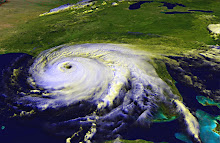If you live in a coastal community, it's your responsibility to know what's happening in the tropics between June 1 and November 30, the official dates of hurricane season.
Of course, hurricanes don't have calendars and can occur at any time of year, but the worst ones typically happen during these months.
The reason I bring this up is that while the American media tends to overhype everything, other interests in the Atlantic and Gulf regions may not.
Consider this: On September 12, after looking at the National Hurricane Center's track (right) and the computer models for Hurricane Igor, I visited the website for The Royal Gazette, the newspaper for Bermuda. I found no mention of Igor, though the paper does maintain an online "Hurricane Awareness" section. I tweeted my surprise: It always amazes me that Bermuda's Royal Gazette doesn't carry advance information on hurricanes that will pass close to or hit the island.
7:33 PM Sep 12th via web I received this response: "We do, but unless it is going to be a direct threat, it does not much of a story"
Two or three days later, I didn't note the date, one article about Igor did appear in the online edition. The tone was, to my mind, very non-committal, like the Weather Service and/or the reporter were reluctant to get anyone overly excited, in case the storm didn't affect the island. Saturday, the front page is full of reports about Igor. The storm's outer bands have already reached Bermuda, with the eye expected to pass very close to the island on Sunday evening.
The Royal Gazette's handling of the Igor story is the opposite of how U.S. mainstream media operates. The Weather Channel, cable news, and local news outlets focus so much attention on a potential disaster, that viewers get sick of hearing about it or begin disbelieving the "hype." I don't know if it's because I worked in the news business for seven years or because I've been through a major hurricane or both, but hype or not, I'd rather have as much advance notice as possible. What about you?
